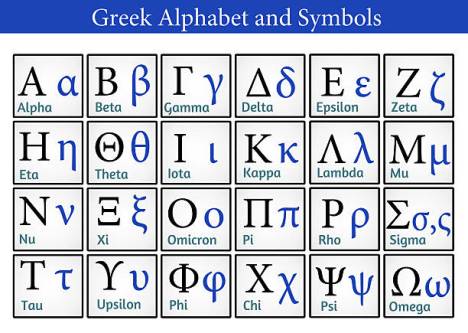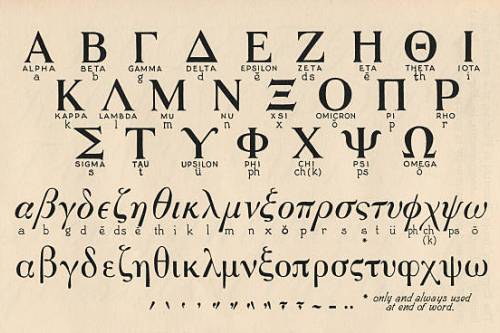Why University Fraternities and Sororities use Greek letters, the back story, and why you should care
Today’s Guest Writer is: Mark A. Korodan
While the answer is not complicated or mysterious, it does take some thought and background information to arrive at the correct answer. I know there are many in academia who know the answer, but I am always surprised at the number who do not. It is my desire here, to not just answer this question, but that the answer may be a catalyst to a profitable discussion concerning the current state of education. It is always best to start at the beginning.
This story begins in Cambridge, Massachusetts, at Harvard University. Education was very important to the early settlers of the United States, so they wasted no time in setting up an institution of higher learning where high school graduates could continue their education. It was just 16 years after arriving on the continent that Harvard was established. Admission to the college was dependent upon the student passing, to some satisfaction, an entrance exam. Entrance exams have not been used much as a qualification for college admission in recent years, but were the norm years ago. The ability of the student to pass such an exam depended on what they mastered during their early years of education.


Since Harvard is the first and probably the most prestigious of early American universities, I will use their entrance requirements for the year 1801 as the starting point. If the reader cares to take the time to research historic entrance requirements of other Ivy League schools, you will find they are all very similar and that Harvard appears to have set the standard for future schools. The entire teaching staff consisted of seven persons: three professors, (theology, Hebrew, and mathematics), and four tutors. The requirements for entrance were an extensive examination in the following: Andrew Dalzel’s “Collectanea Graeca Minora”, the Greek Testament, Virgil, Sallust, and Cicero’s Select Orations, a thorough acquaintance with the Greek (classic/ancient, Koine) and Latin grammars, including prosody (the pattern of rhythms and sounds used in poetry and prose).
Also, the ability to translate those languages correctly, and a knowledge of geography and arithmetic to the rule of three was required. Be mindful that these are high school graduates taking this exam. A high school graduate was expected to read Virgil, Sallust and Cicero in Latin. Students started with Latin very early in grade school, and moved onto Greek in the early years of high school. Most people at this time had some knowledge of Latin even if they never graduated from high school. That’s why most U.S. state flags have mottos written in Latin and not Greek. The most demanding of the above requirements was Dalzel’s book.
This book, written/compiled in the late 1700’s, contained about 300 pages of mostly classic/ancient Greek. It’s interesting to note that the cover page, table of contents, and many of the notes are written in Latin, because it was expected that the reader knew Latin and would make it easier for the Greek novice to navigate the book. The selections include many of Aesop’s Fables, the Luciani Dialogues, selections from the Old and New Testaments, and some ancient Greek poetry, among other writings.


The point in bringing up the entrance exam was to show how high school graduates would arrive on campus with a more than cursory knowledge of Greek. Let’s say you are a student at the College of William and Mary in 1776, and decide to start an academic honor society. When you think up a motto for this new fraternity you choose Greek as the language partly because everyone in academia already knows Greek and it also appears more scholarly. Your new motto is Philosophia Biou Kybernetes (wisdom is the guide of life). The motto is then abbreviated by using only the first letter in each word, the Greek letters of phi, beta, and kappa. So then, the reason for using Greek was not pretentious, mysterious or secretive, just logical and convenient.
Now for the answer to the second part of the question : why you should care. If we as a culture are to have any meaningful dialogue concerning the future of education, we first need to know some history. Historic context and perspective are always necessary, and also the best way to judge the current state of academia. Education in this country began by teaching students how to think. That’s one of the main reasons for the various languages. The main goal in all education is to train the mind how, not what to think. Solving life’s problems is much easier when you know how to think logically.

Very informative thanks!
We definitely do not see the educators main goal lining up with this tradition.
“The main goal in all education is to train the mind how, not what to think.”
Your Uncle Mark has a Great Mind!
Excellent article! I did not know the history behind the use of the Greek alphabet. I look forward to reading more insightful articles from this author!!